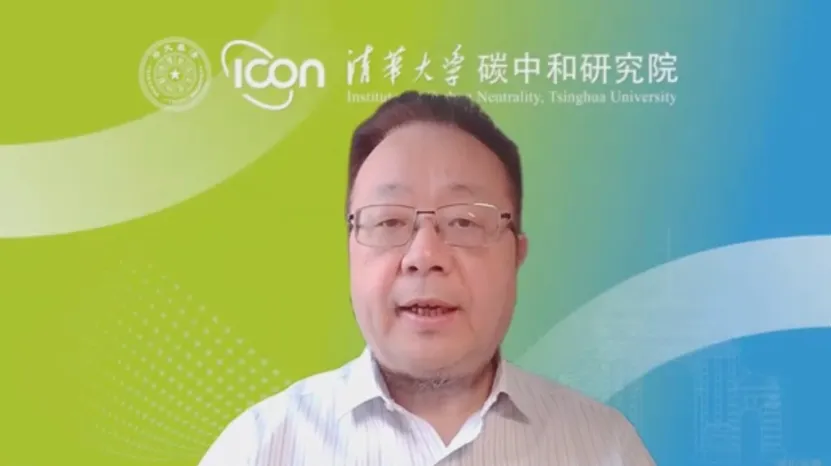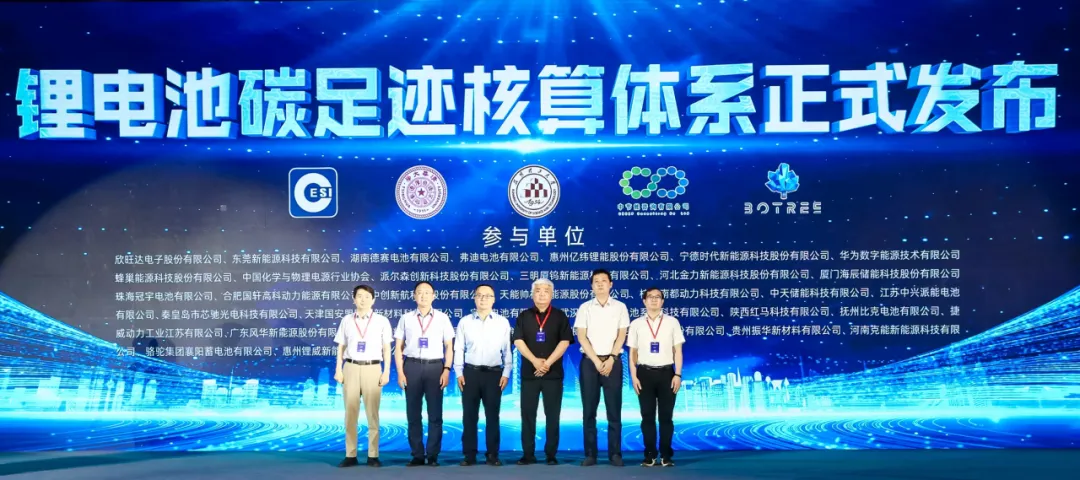At the opening ceremony of the 3rd Sodium-Ion Battery Industry Chain and Standards Development Forum and the Launch Ceremony of the Lithium Battery Carbon Footprint Accounting System on June 13, He Kebin, Academician of the Chinese Academy of Engineering, Director of Institute for Carbon Neutrality, Tsinghua University, and Professor at School of Environment, was invited to deliver the keynote speech. In the process of building the lithium battery carbon footprint database led by the Electronic Information Department of the Ministry of Industry and Information Technology, Researcher Tian Jinping at School of Environment, Tsinghua University led a team that played a crucial supporting role in the framework design, method development, and improvement of the lithium battery carbon footprint accounting, database development, and carbon footprint management system construction.

Keynote speech by He Kebin
He Kebin delivered a presentation titled "Accelerating the Development of an Organized Carbon Footprint Accounting System for Chinese Domestic Products" from three perspectives: major demands, national strategy, and typical case studies. He first introduced the developments of international carbon neutrality commitments and the carbon-related external challenges faced by China's industrial development. With the release of the European Union's Carbon Border Adjustment Mechanism (CBAM) and the Battery and Waste Battery Regulation (referred to as the new Battery Regulation), international green trade barriers are rapidly forming. The new Battery Regulation includes provisions for carbon footprint declarations, classification, and threshold setting for various types of batteries.
He emphasized that the product carbon footprint accounting system is an essential part of the overall design of the national dual carbon strategy. Under the guidance of the "1+N" policy framework, China is accelerating the establishment of a localized carbon footprint accounting system. Several policy documents have been released, focusing on the carbon peak and carbon neutrality standard systems, carbon emission accounting systems, and product carbon footprint management systems. When conducting carbon footprint accounting, it is essential to balance verification calculations and checkpoint calculations. The process should involve several relationships: objects and elements, time and space, static and dynamic, local and overall, direct and indirect. It should combine top-down and bottom-up approaches.
He pointed out that conducting carbon footprint accounting requires tracing along the industrial chain, establishing material and energy flow and input-output inventories for corresponding processes. Based on this, we can then calculate the local carbon footprint of products at various levels of the supply chain. In the future establishment of localized product carbon footprint factor databases, it is advisable to focus on key industries such as bulk basic materials and key products to establish a comprehensive carbon footprint accounting system. This will facilitate carbon footprint accounting for downstream products.

The lithium battery carbon footprint accounting system was officially launched
During the event, the lithium battery carbon footprint accounting system was officially launched. This system aims to continuously enrich and enhance China's localized lithium battery carbon footprint database, advance research on lithium battery carbon footprint accounting methods, and enhance industry service capabilities. It seeks to promote the development of a new engine for green and low-carbon growth in the lithium battery industry, foster new competitive advantages, and enhance the core competitiveness and international influence of the lithium battery industry.
In recent years, School of Environment and the Institute for Carbon Neutrality, together with over 40 domestic and international universities and research institutions, have led the development of the TianGong Database, to support the establishment of China's carbon footprint management system. The lithium battery carbon footprint accounting system will provide robust support for the TianGong Database.





